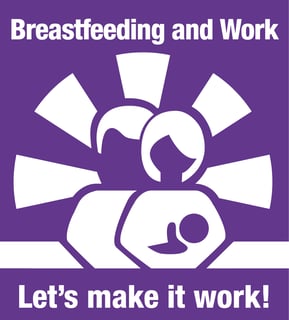- Privacy Policy
- Terms & Conditions
- Contact us
- ©Isabel Healthcare 2025
World Breastfeeding Week (WBW2015) - Breast Feeding Questions Answered
 All this week over 170 countries worldwide will be celebrating the benefits of and the right to breastfeed, with a campaign run by World Alliance for Breastfeeding Action (WABA). For World Breastfeeding Week in 2015 (WBW2015), the focus is very much on combining a working day with feeding your baby. The week kicked off with a mass public feeding called “The Big Latch On” to show the importance of women everywhere being able to feel comfortable feeding their babies wherever and whenever required. To help support WABA Breastfeeding Week, we’ve put together some FAQs on breastfeeding, both in terms of the many health benefits to breastfeeding, and your rights as a nursing mother.
All this week over 170 countries worldwide will be celebrating the benefits of and the right to breastfeed, with a campaign run by World Alliance for Breastfeeding Action (WABA). For World Breastfeeding Week in 2015 (WBW2015), the focus is very much on combining a working day with feeding your baby. The week kicked off with a mass public feeding called “The Big Latch On” to show the importance of women everywhere being able to feel comfortable feeding their babies wherever and whenever required. To help support WABA Breastfeeding Week, we’ve put together some FAQs on breastfeeding, both in terms of the many health benefits to breastfeeding, and your rights as a nursing mother.
How much better is breast milk than the alternatives?
Breast is Best for your baby. This is a medical fact, but just how much better is it than other alternatives such as formula milk? The breast milk of any mother is designed specifically to care for their own child, containing over 400 nutrients, hormones and antibodies to fend off disease and illness as the baby develops. Formula milk, although containing more vitamins than regular cow’s milk, contains no where near as much as the equivalent amount of breast milk. What’s more, it has none of the natural antibodies that the body of a mother is able to produce. As well as direct health benefits, breast milk can help bonding between mother and baby through skin to skin contact, and even help develop taste preferences in your child - breast milk tastes different depending on the diet of the mother, meaning your child is introduced to a variety of tastes early on.
How long should I breastfeed for?
It is advised that the best start you can give an infant is to exclusively breastfeed from birth until around 6 months. After this, it is recommended you introduce other solids into the diet gradually, combining with less frequent feeds of breast milk. After that it is entirely down to the choice of mother and baby. It’s mostly likely you will know when it’s right to stop, but the most common age by which breastfeeding is completely phased out is 12-24 months.
How do I prepare my body for breastfeeding?
Breastfeeding is a very natural process and your body will do a lot of the work for you, such as the areolas of your nipples releasing oil that lubricates your nipples. However, there are certainly things you can be doing to help your body prepare and continue to be able to produce milk with ease:
-
Eat well. Generally a mother will need around 500 calories extra each day to maintain a healthy weight and produce healthy milk. As mentioned above, your food can influence the taste of your breast milk, so eating healthy and nutitritous foods will help your baby get accustomed to a balanced diet.
-
Cut down on smoking, and drinking alcohol or caffeine. Anything you consume can pass through, admittedly in much smaller amounts, to your milk. That means drinking a lot of coffee could be the reason your child isn’t sleeping well, and there could even be small amounts of nicotine from smoking entering your baby’s body.
-
Check any medicines are ok. Most medicines are okay to continue taking whilst breastfeeding, but it’s worth checking with your doctor if your medication is still okay now you’re breastfeeding
-
Take Vitamin D supplements. One thing that breast milk does not have in abundance is Vitamin D. To counteract this, taking supplements yourself can help the much needed vitamin to pass through to your child during feeding time.
Can I breastfeed anywhere?
In the both the US and UK, it is illegal to discriminate against a woman for breastfeeding in a public place. So you can breastfeed virtually anywhere: the park, the cafe or restaurant, the cinema etc. It is acceptable to prevent breastfeeding in places where the act could cause harm to the baby or mother e.g. areas of high radiation. In the US, state laws can vary slightly but the same generally applies, and some states even insist on providing a space for women to breastfeed.Additionally, under the Affordable Care Act, employers of over 50 people are required to provide adequate breaks for women to breastfeed their child or pump milk. At the moment, there is no equivalent law in the UK.
If you'd like to read more about World Breastfeeding Week, head to the website, where you'll find their mission statement, campaign resources and success stories.
If you're worried about your breast milk or the health of your baby, run any symptoms into our symptom checker and contact a medical professional:

Mandy Tomlinson
Mandy has worked for Isabel Healthcare since 2000. Prior to this, she was a Senior Staff Nurse on the Pediatric Infectious disease ward and high dependency unit at one of London's top hospitals, St Mary’s in Paddington which is part of Imperial College Healthcare NHS Trust. Her experience in the healthcare industry for the past 33 years in both the UK and USA means she's a vital resource for our organization. Mandy currently lives and works in Scottsdale, Arizona.
Subscribe Here!
Recent Posts
Isabel DDx Companion with ChatGPT Integration - to help you diagnose even faster
At Isabel Healthcare, we’ve always been driven by one goal: to make clinical reasoning faster,..Virtual Triage: Do more questions lead to better patient outcomes?
One of the common misconceptions related to virtual triage / symptom checker tools is that the more..List Of Categories
- Differential Diagnosis Decision Support
- Differential diagnosis
- Symptom Checker
- Symptoms
- Medical Error
- Patient Disease Information
- Disease
- Clinical Decision Support
- Diagnostic Decision Support
- Isabel 1 Minute Read
- Diagnosis Error
- Diagnosis Skills Cases
- Healthcare Informatics
- Clinical Reasoning
- Evidence-based Medicine
- Medical Education
- Patient Engagement
- Symptom Triage
- Nurse Practitioner Education
- Nursing Decision Support
- Partnership
- Public Health
- COVID-19
- EHR
- Patient Empowerment
- Patient Safety
- rare disease

Start your FREE Trial today
Try the Isabel Pro DDx generator for 30-days - no payment card details required.




